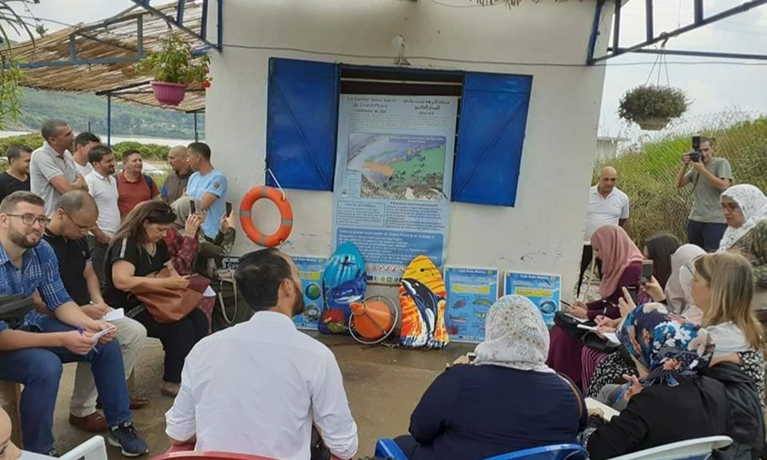Search
Coventry University awarded £300K for environmental research in Algeria

Friday 01 May 2020
Press contact
The Centre for Trust, Peace and Social Relations (CTPSR) was recently awarded £300k from The British Academy to research solutions to environmental issues and how these could contribute to meaningful employment opportunities for youth in Algeria.
‘Imagining the Future’ is a Youth Futures Algeria project which aims to capture the creative ideas of young people in an effort to reconceptualise their futures as citizens and decision-makers in the environmental sector and beyond. Co-designed with the University of Jijel, Algeria, the project is steered by a network of 20 youth researchers from 12 universities.
Like many countries, Algeria faces a number of environmental challenges such as plastic and air pollution, overexploitation of natural resources, desertification and the abandoning of traditional oases due to climate change and migration trends. Creative solutions to tackling these problems can also combat high youth unemployment, by creating meaningful new livelihoods in the environmental sector.
This is a truly exciting project bringing together several UK, Irish and Algerian universities in a dynamic network led by youth researchers from across Algeria. It seeks to research the challenges faced by young people and to discover how we can support them to bring their own ideas to the fore in order to find solutions to environmental difficulties we will all increasingly face in the 21st century.
Jessica Northey, Principal Investigator, CTPSR
‘Imagining the Future’ aims to promote economic development and welfare across Algeria by amplifying the voices of young people to improve policies. It will train a new generation of researchers to get involved in participatory research and translate the findings into policy guidance for local, regional and national government, business leaders and civil society organisations across the country.
Leading co-investigator, Professor Said Chawki Chakour of the University of Jijel highlights the importance of strengthening international partnerships in the current context of COVID-19:
Young people represent our future and we need to place them at the forefront of our concerns, particularly when it comes to questions of governance of our precious natural resources and the environment that they, and their children, will inherit. In light of the deep societal changes taking place as a result of the pandemic, it is equally important to strengthen our training and research methodologies, particularly drawing on qualitative methods and participatory approaches.
This research will also prove valuable across North Africa, the Mediterranean, and beyond, with many countries facing stark new challenges around sustainability, climate change adaptation as well as considerations around the future of work.




